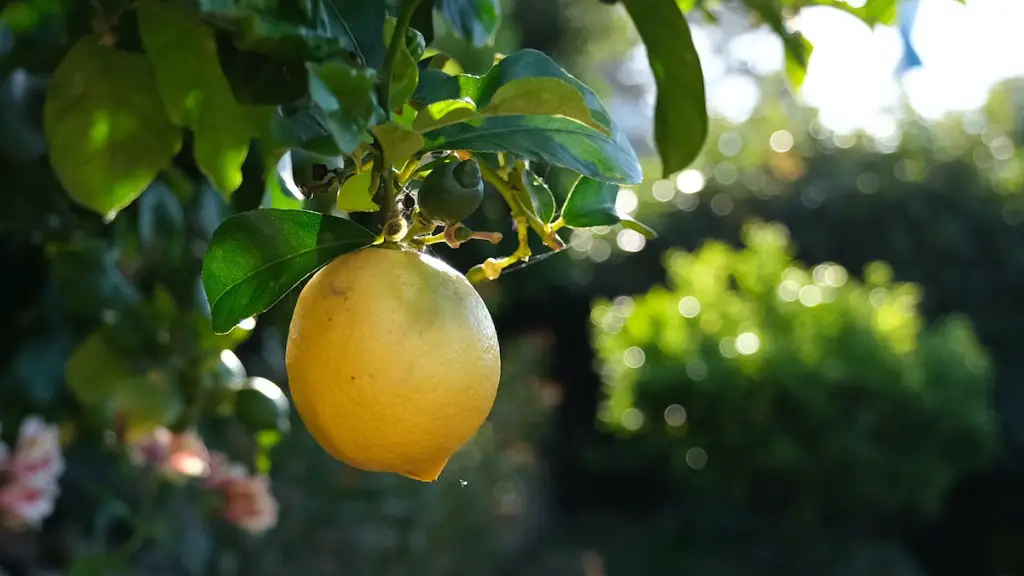How to keep Lemon Tree Healthy: Lemon trees are one of the most rewarding plants to keep in your garden or home. But, without proper care and attention, a lemon tree can quickly become unhealthy and produce less fruit. To help you keep your lemon tree healthy, here are some tips for proper maintenance and care.
Firstly, choose an appropriate spot. Once you have decided to plant a lemon tree, make sure you choose a spot with ample sunlight and good drainage. Place your tree in a location that receives 6-8 hours of direct sunlight daily. Also, select a place that’s sheltered from strong winds and protected from frost.
Second, maintain the soil. To ensure your lemon tree grows healthy, you need to make sure its soil is top-notch. Aim for a soil with rich organic matter, slightly acidic pH, and good drainage. Incorporate soil amendments such as compost, mulch, and fertilizer at planting time and during the growing season, to maintain the soil’s quality.
Third, water regularly. Observe your lemon tree and water it when the soil starts to dry out. But, at the same time, make sure you’re not overwatering it. Keep your lemon tree healthy by providing a deep and thorough irrigation once a week.
Fourth, manage pests. Just like many other plants, lemon trees are prone to insects and other pests. However, you can manage them organically with natural and safe products like neem oil and diatomaceous earth.
Fifth, prune your lemon tree. Pruning helps the lemon tree produce higher quality of fruit, increases its production, and helps maintain its overall health. You should make sure to remove dead or dying branches, thin out the canopy and remove suckers (smaller secondary branches).
Lastly, fertilize your lemon tree. Fertilize your lemon tree throughout the growing season with a balanced fertilizer, specific for citrus trees, for best performance and health.
Robust Growing Conditions
Growing conditions are an integral part of producing healthy and abundant lemon trees. They can affect the vigor of the plant, its health and its ability to produce fruits. A good environment should provide full sun, appropriate temperature, and adequate soil moisture.
Lemon trees should always be placed in sunny locations that receive 6-8 hours of direct sunlight a day. This will ensure they are blooming and bearing fruit. Depending on the variety, lemon trees can tolerate temperatures ranging between 65-95 degrees Fahrenheit. Out of these temperatures, the optimal range lies between 68-85F. Also, you need to keep the soil moist and check it daily, as these trees are extremely sensitive to drought.
You should also make sure your lemon tree is sheltered from strong winds and cold weather. If this is not possible, then you need to provide some kind of winter protection. Additionally, it’s important to monitor the soil pH and adjust it within the acidic range of 5.0-7.0.
Fruit Support
Fruit is produced at the ends of the lemon tree branches, and it requires a great amount of energy for production. In order for the fruit to develop, the lemon tree needs sufficient nutrients, water, and sunlight. Neglecting even one of these elements can drastically affect the quality and quantity of fruit produced by the tree.
So, ensure your lemon tree is getting all the nutrients it needs. To do this, use a water-soluble fertilizer that’s specifically made for citrus trees. This should be applied every two weeks during the growing and fruiting season of the tree. You can also spread a layer of organic mulch on top of the soil to help lock in moisture and increase fertility.
Additionally, pruning is essential for producing larger and juicier fruits. Thin out the canopy and keep the main leader branches balanced for a good air circulation and sun exposure. And, make sure you leave enough room for the upcoming fruits.
Moreover, you need to support and protect the fruits from the ground. This will prevent them from rotting or being eaten by other animals. To do this, you can use ties, cages or hoops and hang the lemons from them, reducing the friction with the soil.
Spring Care
It’s essential to keep your lemon tree in top condition during the spring season. This is the period when the tree will start growing again, and it is the best time to prune it. Prune all the excess branches, as they will prevent the sunlight from penetrating all parts of the tree.Additionally, you need to check for pests and diseases and take appropriate measures, such as spraying the tree with natural and safe products.
In spring, it’s also important to ensure your lemon treehas enough nutrition to give it the strength and vigor needed to produce lemons when the season comes. Fertilize your tree using a commercial citrus one, following the instructions on the package. You should also consider adding organic matter to the soil and use it as a mulch.
Finally, check the soil for dryness and water the tree when needed. Remember the soil should always be moist but never soaked.
Fungal Diseases
Fungal diseases can easily damage your lemon trees, leading them to produce fewer fruits or die. One of the most common diseases is the Phytophthora root rot. It occurs when the soil is too wet, making it an ideal environment for the fungi to live and reproduce. Symptoms of this disease include yellowing of the leaves and stunted growth.
If you notice these symptoms, make sure to act quickly. Start by adjusting the irrigation system and improve the drainage of the soil. You can also remove the affected parts of the lemon tree and spray it with a fungicide. Additionally, make sure to use a sterilized pruning saw and leave the area around the tree clean of the infected material.
To prevent the disease from recurring, include organic matter in the soil to improve its drainage. Also, prune the tree regularly to increase the ventilation and reduce the amount of moisture. Lastly, use fungicides to treat the tree as it’s essential to fight the fungus.
Summer Care
During the summer, keeping your lemon tree healthy must become a priority. The weather will be getting hotter and more humid, and this can affect your lemon tree’s growth. Consequently, make sure you irrigate it regularly and never let the soil dry completely.
If you live in a very hot region, you might consider setting up a shade cloth to protect the lemon tree from the sun’s intense radiation. You can also include mulch to the soil to help keep the soil cool and adequately moist. Additionally, amending the soil with organic matter can increase fertility and reduce evaporation.
Fertilizing is also essential during this period. Use a commercial citrus fertilizer to provide your lemon tree all the nutrients it needs. Checking for pests and disease is also important to keep the tree healthy, as well as pruning the canopy for increased air circulation and sun exposure.
Winter Care
Winter can be especially challenging for lemon trees. If you live in a cold region you need to provide winter protection to keep your lemon tree healthy and ready for next season. To do this, use plastic sheeting or heat lamps around the tree to keep it warm. Also, make sure the soil is moist and mulched. Moreover, cover the soil with a thick layer of organic matter to protect it and keep it cool.
Moreover, prune your lemon tree and check for dead or diseased branches. This will help the tree get ready for the next growing season and keep it healthy. If it’s too cold for your tree and it stops growing, wait until temperatures increase and resume regular maintenance. This can include checking for pests, fertilizing and irrigating, among others.
Finally, adjust the pH of the soil if needed. A slightly acidic pH of 5.5-6.5 is usually best for lemon trees. You can do this by incorporating sulfur to the soil.




